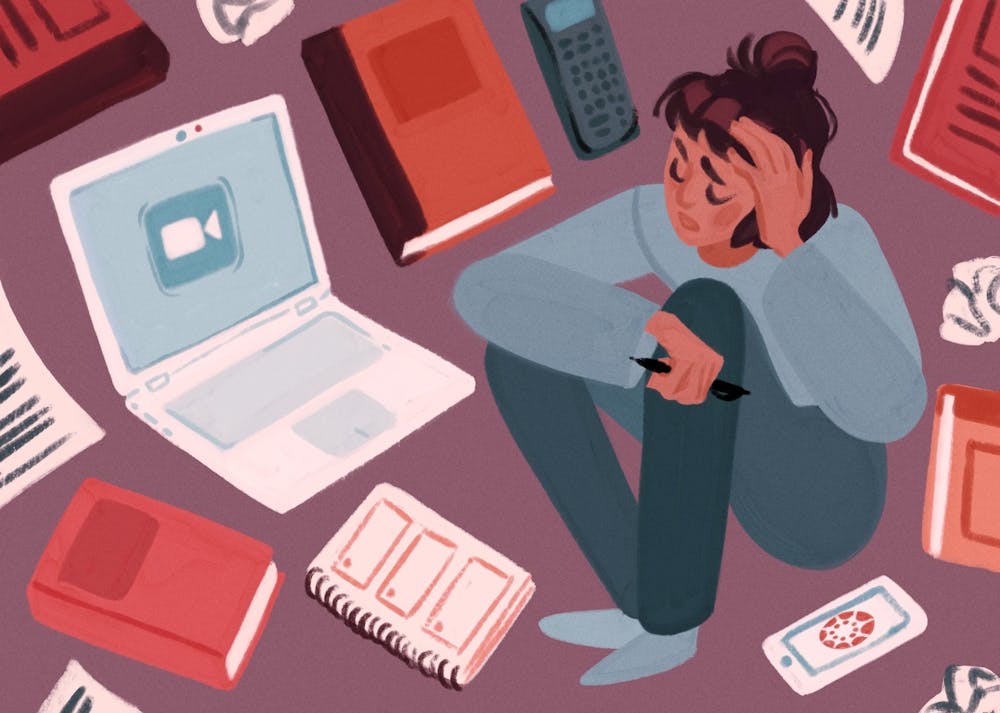Despite ASU's best intention of canceling fall break, the decision robs students and faculty of a pivotal asset to use to power through the semester when they need it the most: a time to decompress from school. For that reason, this decision shouldn't be repeated for next semester's spring break.
Before the start of the fall semester, ASU announced its plan to cancel fall break, saying the move was to limit travel and control the spread of COVID-19.
The plan makes sense until you consider the workload and mental strain that comes with online classes, coupled with the general negative impact this pandemic has had on the lives of many college students.
While some do use fall break to travel, others simply use it as a time to take a mental health break. Even without a global pandemic, college is stressful.
ASU faculty associate Charles Peterson, who teaches a course on Leisure and Quality of Life, argued that "the pressure on students has been tremendous because of the extra complications of COVID-19 and a fraught political climate" and said that "this semester has been one of the most mentally challenging of my teaching career."
Since fall break was canceled, students and faculty have complained about feeling overworked and unmotivated. With classes and events taking place mostly online, students aren’t getting the joy of a traditional college experience.
Many students are feeling “Zoom fatigue” as well, which takes an additional toll on their mental health. In Peterson's words, "it seems that a larger number of students are stretched beyond their limits."
Additionally, some point out the contradictory nature of ASU’s decisions regarding the coronavirus, arguing that if ASU wanted to stop the spread of COVID-19, they wouldn’t have opened campus in the first place while Arizona was seeing a spike in cases.
Ironically, ASU is beginning to host in-person, socially-distanced tours on campus, which will cause unnecessary travel to Tempe from other parts of the state and country.
These contradictions are certainly confusing. In some instances, ASU does take some actions that suggest they want to limit the spread of COVID-19, while others completely ignore the fact we are still seeing a rise in cases across the country. It seems ASU's contradictions in its decisions arise when it has money to lose.
Schools across the country are now announcing their decisions to cancel spring break for similar reasons they did for fall. Considering the explosion of cases we saw during spring break last year, ASU possibly canceling this upcoming year's break is understandable.
I do acknowledge that ASU staying closed may not be sustainable from a monetary standpoint, but is there a better alternative than completely taking away spring break?
When asked about an alternative to the spring break, Peterson said, "Although I am in favor of canceling spring break, there is one alternative I would be thrilled to see: A spring break where no one travels, people get caught up on sleep and healthy eating, people remain physically distanced and masked while exercising outside, and people set down their screens for five days. "
Some are getting creative with spring breaks instead of canceling them. Davidson College, for example, is giving students a "surprise break," a much-needed break without giving them time to make travel plans.
Other options include asking students to avoid traveling to high-risk areas, asking students who do travel to quarantine or requiring students to get tested after spring break ends, but these options would require cooperation from students and may be riskier, given how spring break went last year, along with the spike ASU saw after students returned from summer break.
Another alternative that UA implemented is reading days, a few days off spaced out through the semester, rather than an entire week off. This would also give students the same amount of time off without the worry they would have enough time to travel across the country or the world, and cause the spread of the virus to spike out of control. I personally would be interested in seeing ASU give this option a try.
Nevertheless, I hope ASU also weighs the mental health of its students and offers an alternative that will both control the spread of COVID-19 and give students the much-needed break they deserve.
Reach the columnist at htenore@asu.edu or follow @Haleyyhmt on Twitter.
Editor’s note: The opinions presented in this column are the author’s and do not imply any endorsement from The State Press or its editors.
Want to join the conversation? Send an email to opiniondesk.statepress@gmail.com. Keep letters under 500 words and be sure to include your university affiliation. Anonymity will not be granted.
Like The State Press on Facebook and follow @statepress on Twitter.

Haley Tenore is the editor of the State Press Opinion Desk. Tenore is also a digital reporter for Cronkite News and a co-president of the Accessibility Coalition. This is her fourth semester on the opinion desk and second semester as editor.




